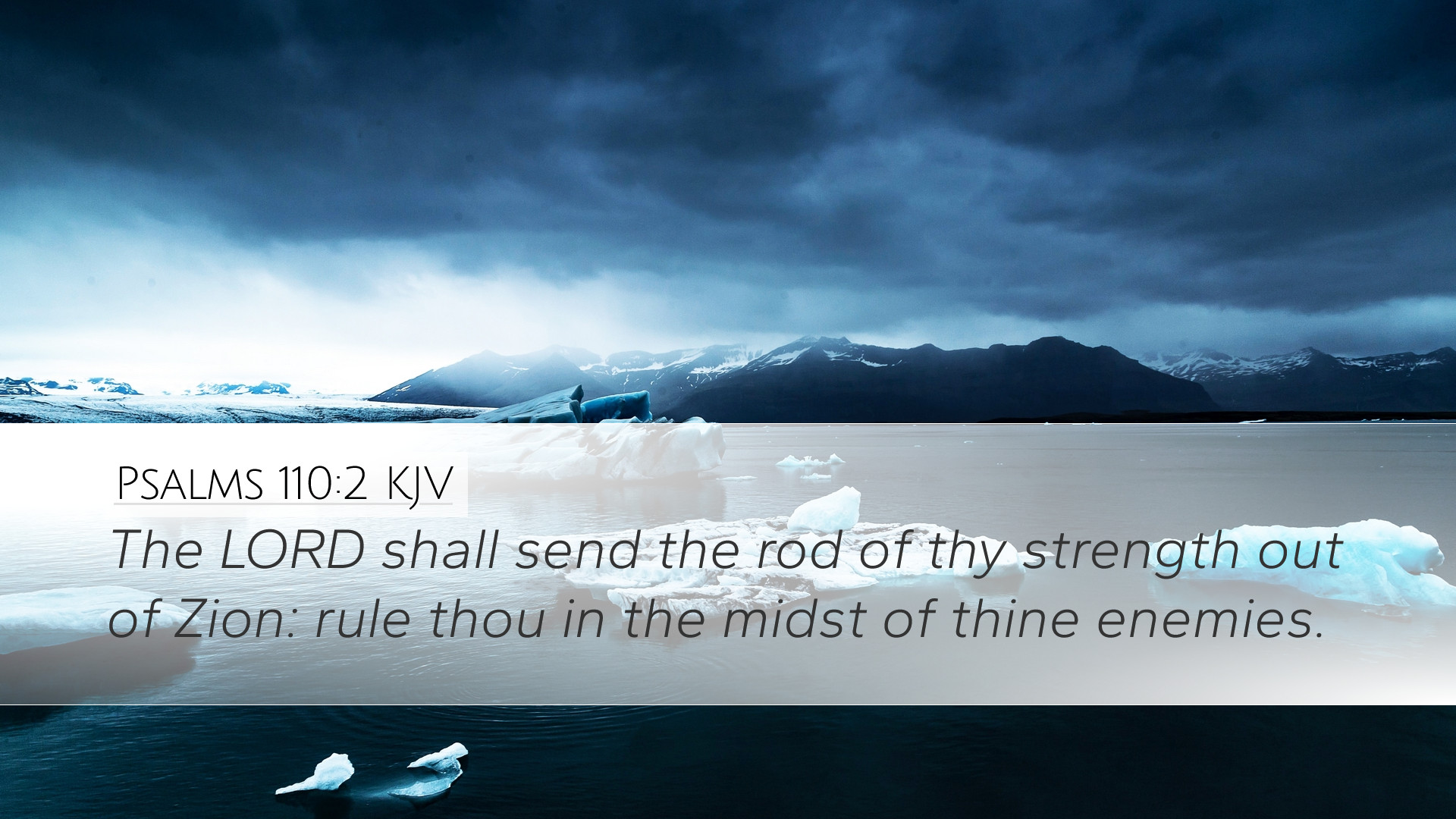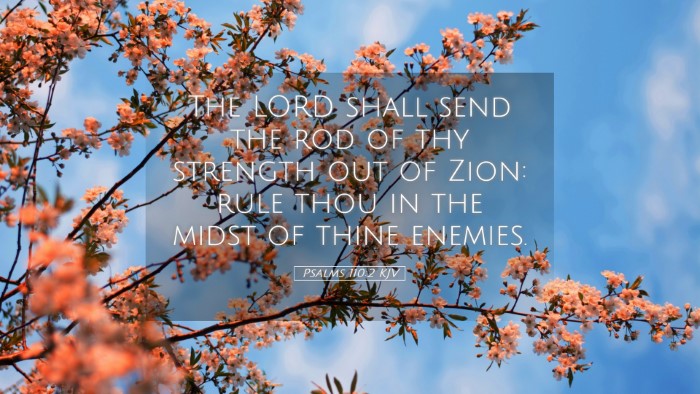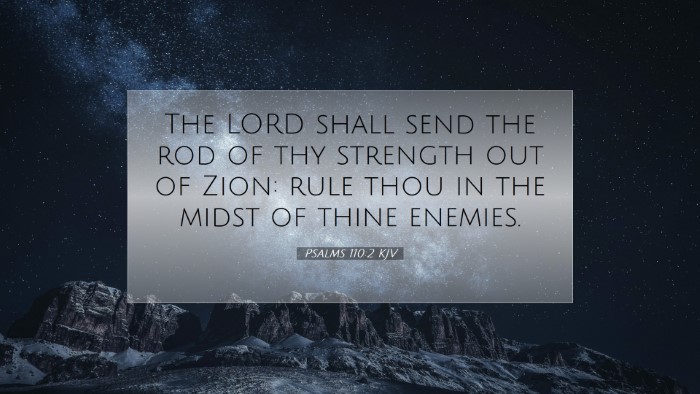Commentary on Psalms 110:2
Psalms 110:2 (KJV): "The LORD shall send the rod of thy strength out of Zion: rule thou in the midst of thine enemies."
Introduction
This verse from the Psalms is pivotal in the understanding of the messianic prophecy and the Kingship of the Lord. It presents a confluence of themes including divine authority, the strength of Zion, and the existential struggle against enemies. By examining this verse through the lenses of different commentators, we can draw valuable insights for application in theological discourse.
Divine Authority and Rule
Matthew Henry: Henry emphasizes that this verse points to a future ruler, one endowed with divine authority. The 'rod of strength' signifies the sovereign power that God grants His anointed. The metaphor of a "rod" denotes authority and governance, indicating that the rule is not merely ceremonial but impactful in the life of the believers and the nations.
Albert Barnes: Barnes interprets this passage as signifying that the Lord's anointed (often seen as Christ) will exercise authority from Zion, the city of God. The 'rod of strength' implies not just physical might but spiritual power, ruling not only in the temporal realm but also establishing a spiritual kingdom amidst opposition.
Adam Clarke: Clarke provides a look into the Hebrew terms used in this verse. He notes that "rule thou in the midst of thine enemies" suggests an active engagement of the ruler in a hostile environment—this paints a picture of Christ's reign where His authority is acknowledged even in the presence of adversities.
The Significance of Zion
Matthew Henry: Zion, as the locus of God's presence, becomes crucial in understanding the authority from which this ruler operates. Henry suggests that Zion represents the church and signifies God’s dwelling place among His people. Thus, the strengthening of Zion is emblematic of God’s promise to His followers.
Albert Barnes: Barnes sees Zion at the spiritual heart of the kingdom. It is not just a geographic location but a symbol of the access believers have to divine strength. This ‘rod’ is sent out as a means of grace, providing believers with what they need to thrive amidst challenges.
Adam Clarke: Clarke focuses on the prophetic importance of Zion and its role in the eschatological plans of God. The authority extended from Zion implies a universal reign that transcends boundaries, hinting at the eventual establishment of God’s kingdom on earth.
Enemies and Triumph
Matthew Henry: Henry asserts that the mention of 'enemies' underscores the reality of spiritual warfare. The ruler's reign is juxtaposed against opposition, serving as a reminder that believers will face challenges. However, this verse assures that the divine rule will ultimately prevail over adversaries.
Albert Barnes: Barnes reflects on the enemies in a dual sense: both personal struggles and larger societal evils. The omnipotence of God in this verse allows believers to find solace; no matter the adversaries faced, God's ordained ruler provides assurance of ultimate victory.
Adam Clarke: Clarke emphasizes that ruling 'in the midst of thine enemies' illustrates a profound truth about the Christian walk. Believers are not removed from struggles but are equipped by divine strength to face them head-on, reinforcing the idea of active faith amidst trials.
Theological Implications
This verse has rich theological implications, particularly concerning the nature of Christ's kingship and the call of the church. The 'rod of thy strength' can be seen as the embodiment of authority not just for governance, but also for protection and guidance.
- Messianic Interpretation: Many theologians view this verse as a direct reference to Jesus Christ, reinforcing His role as the divinely appointed ruler over all creation.
- Soteriological Insight: The power that emanates from Zion reflects God's redemptive work; through Christ's death and resurrection, believers are granted the strength needed for sanctification and spiritual warfare.
- Eschatological Outlook: This verse also points to the ultimate reign of Christ at the end of times, where all enemies will be subdued under His feet. It presents a vision of hope that transcends current trials.
Conclusion
Psalms 110:2 serves as a critical affirmation of God’s sovereignty over His anointed, specifically concerning the strength granted to face adversities. For pastors, theologians, and students of the Bible, it encapsulates key components of faith—the assurance of divine rule, the importance of spiritual engagement, and hope for the future amidst present trials. The insights from Matthew Henry, Albert Barnes, and Adam Clarke all converge to provide a multifaceted understanding necessary for a robust theological foundation.


